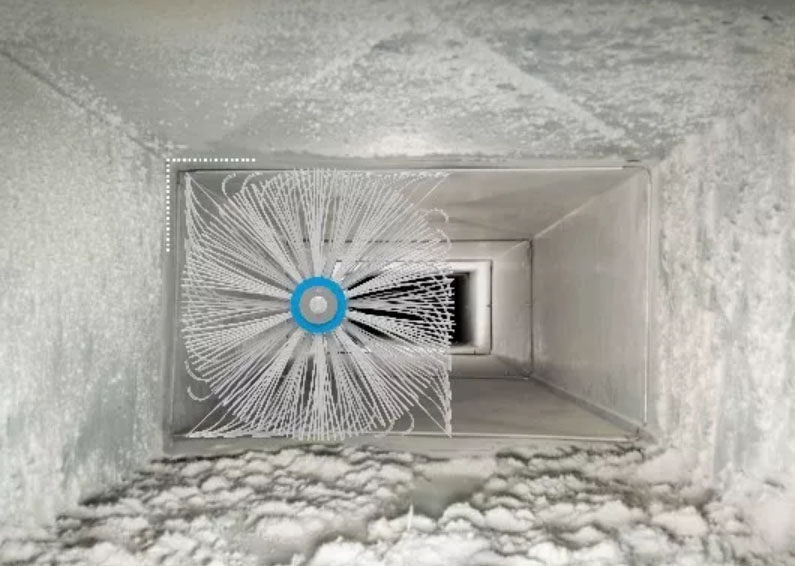In the modern times, effective energy use remains a critical concern for homeowners and businesses equally. One of the most significant areas where energy savings can be achieved comes from heating, ventilation, and air conditioning (HVAC). Whether you are looking to reduce your monthly expenses or improve the comfort of your home or workplace, grasping the fundamentals of HVAC is crucial.
This basic guide will take a closer look at the concept of HVAC is, offering you the understanding needed to handle common HVAC problems and care for your system effectively. This guide will cover practical tips for enhancing energy savings, from selecting the right HVAC system to adjusting thermostat settings for each season. Come along as we explore the strategies that can help you reduce costs while ensuring a pleasant environment year-round.
Comprehending HVAC
Heating, Ventilation, and Air Conditioning, an acronym for Heating, Ventilation, and Air Conditioning, is essential for providing comfortable interior environments. It includes a variety of technologies that regulate temperature, humidity, and indoor air quality in residential and business settings. These systems cooperate to establish a harmonious atmosphere, making sure that heat distribution is uniform during colder months and that fresh air flows during the hotter seasons.
The working of an HVAC setup can be broken down into 3 main elements: warming, airflow, and cooling. Heating units, such as boilers and heat pumps, produce thermal energy, while cooling systems provide cold air to give coolness in high temperatures. Ventilation is the method of exchanging air within a space to remove moisture, foul scents, and contaminants, thereby boosting indoor air quality. Comprehending how each of these elements works helps residents and businesses tailor their HVAC installations to meet their individual requirements.
When investing in an HVAC solution, factors like energy efficiency, cost, and the dimensions of the space must be taken into account. Modern HVAC systems are increasingly engineered with efficiency-enhancing features that minimize both environmental impact and bills for utilities. The most advanced technologies, such as intelligent climate controls and zoning systems, give property owners more command over their heating and cooling, highlighting the importance of keeping abreast about possible selections and progress in the industry. This insight can bring about improved satisfaction and significant savings over time.
Enhancing Energy Conservation
To improve energy conservation in your HVAC system, start by ensuring that it is correctly sized for your home. An too large system can lead to short cycling, where the system cycles frequently, spending energy and causing wear and tear. On the other hand, an too small system may find it challenging to keep comfortable temperatures, leading to extended run times and higher energy bills. Get advice from a HVAC expert to assess the ideal size for your HVAC system based on your home’s square footage, insulation, and other considerations.
Consistent maintenance is key to keeping your HVAC system running efficiently. Schedule seasonal tune-ups to maintain components, check coolant levels, and replace filters as needed. Soiled filters can restrict airflow and make your system work more, which raises energy usage. Additionally, making sure that coils and fans are clean can help enhance airflow and efficiency, ultimately reducing your energy costs and lengthening the lifespan of your system.
Incorporate smart technology into your HVAC system for improved energy conservation. Intelligent thermostats allow you to set heating and cooling schedules based on your daily routine, ensuring that energy is not thrown away when you're not home. They can also learn your preferences over time and adjust settings on their own for optimal comfort. Moreover, consider zone control that allow you to heat and cool specific areas of your home separately, providing improved temperature control and further reducing your energy bills.
Caring for Your HVAC System
Consistent maintenance of your HVAC system is crucial to guarantee optimal performance and longevity. Start by checking and replacing air filters every month or so, as dirty filters can obstruct airflow, reducing the efficiency of the system and leading to higher energy costs. Additionally, keep the area around your outdoor unit clear of debris such as leaves, grass clippings, and snow to promote proper airflow and operation.
Seasonal maintenance checks are necessary for maintaining the efficiency of your HVAC system. Schedule a professional inspection at least a single time a year, ideally in spring for air conditioning units and fall for heating systems. During these inspections, a technician can service components, check for refrigerant leaks, and ensure all electrical connections are tight. This proactive approach not only extends the life of your system but can also avert costly repairs down the line.

Moreover, homeowners should be watchful for any warning signs that could indicate a need for repair. Pay attention to unusual noises, rising energy bills, or inconsistent temperatures throughout your home. Addressing these issues promptly can save you from more extensive problems and help maintain a comfortable indoor environment. By committing to Discover More and being aware about your system’s performance, you can enjoy efficient heating and cooling for many years to come.
